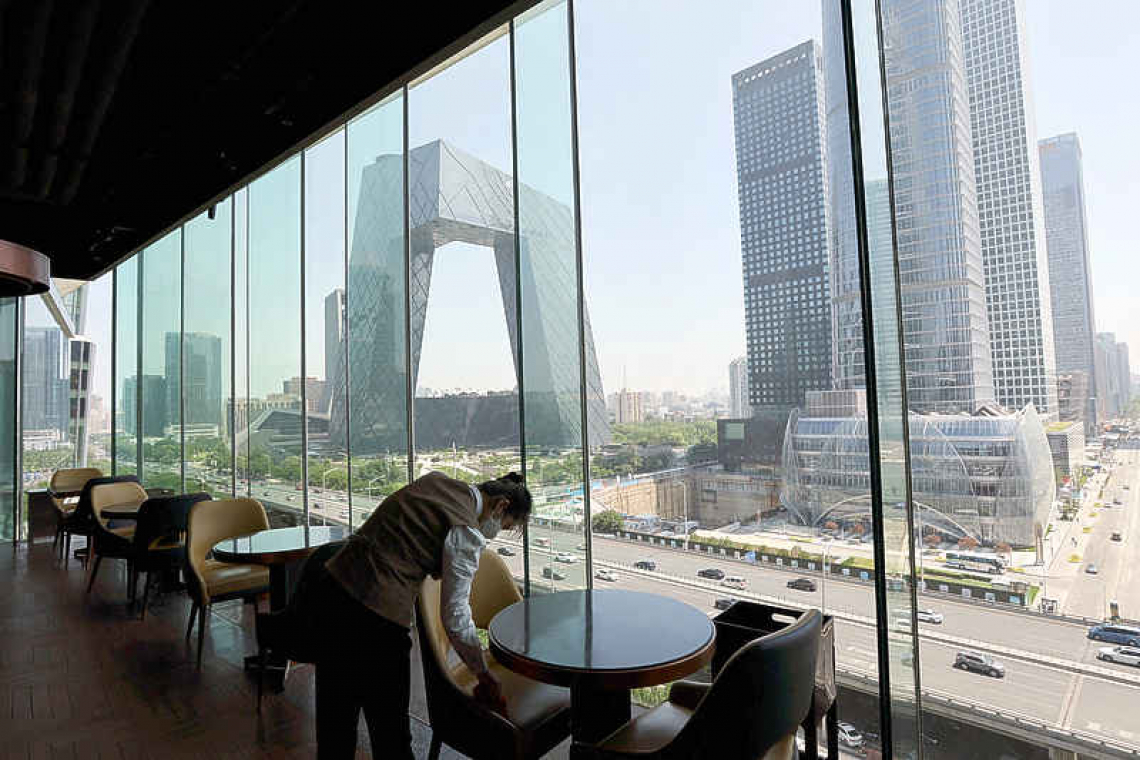BEIJING--China's sputtering economy has a lot riding on its consumers, who are just now emerging from lockdowns in Shanghai and other big cities. But those hopes are running up against the likes of Wu Lei, a soccer coach in Beijing who has put off buying a new mobile phone.
"I've lost the lion's share of my income since Beijing called a stop to after-school sports clubs in April," said Wu, a 37-year-old with two daughters. The five-week-long near-shutdown of the Chinese capital under China's stringent COVID-19 measures was eased on Monday.
"We have no spare money even in normal months, so now we feel really under financial pressure," he said.
China is moving to spur spending that was depressed by COVID curbs in some of its biggest cities, but piecemeal measures such as vouchers, subsidies for car buyers and digital yuan payments have been modest compared with other big global economies. Policymakers have instead stuck to their preferred approach to stimulus, which focuses on businesses and infrastructure.
Those measures, analysts said, will not be enough to drive a recovery in consumer spending, which accounted for more than two-thirds of first-quarter growth in China's economy, as it rebalances away from a heavy dependence on exports and investments. That will, in turn, impede the strength of recovery in the world's second-largest economy, a crucial engine of global growth.
"Consumers are rattled," said Mark Tanner, managing director at Shanghai-based research and marketing consultancy China Skinny. "They are lacking confidence that they had before, partly due to the uncertainty around the highly transmissible Omicron being contained for long, but also as they are not feeling as good relative to other countries."
Constraining the rebound, analysts said, are not just income losses during the lockdowns, but lingering fears about job security and COVID-related curbs, as well as authorities' reticence towards policies that would get more money quickly into consumers' pockets. China's retail sales shrank 11.1% in April from a year earlier, the biggest fall since the height of China's first COVID outbreak two years ago that ravaged the city of Wuhan.
The rebound that followed then was robust for upmarket brands such as Louis Vuitton and Gucci, but wider consumption struggled. Retails sales for 2020 fell 3.9% from the previous year, the first contraction since 1968. But the overall economy grew 2.2% in 2020, roaring back from a record slump in the first quarter and making China the only major world economy to expand.
This time, analysts said, the picture is murkier. China's once high-flying property and tech sectors are wobbling and persistent job stresses have undercut the "revenge consumption" that typically follows when lockdowns ease up, and shoppers flock back to stores with a vengeance. China's urban jobless rate rose to 6.1% in April, the highest since February 2020 and well above the government's target ceiling of 5.5%. Some economists expect employment to worsen before it gets better, with graduates entering the workforce in record numbers.
Fears of fresh lockdowns also loom large, especially in Shanghai, where some of the upscale, tree-lined neighbourhoods of the former French Concession were fenced in over the weekend and residents taken away after new COVID cases were discovered.
In Shenzhen, which went through a week-long lockdown in March, residents must be tested every 72 hours to use subways and taxis or enter malls and parks. Employees of restaurants and hairdressers noted fewer customers since the system was implemented. Similar rules apply in Beijing and Shanghai.
Chinese authorities, however, have been reluctant to spur consumption with cash handouts similar to those in developed countries. They face fiscal constraints, and fear that handouts would end up favouring China's wealthiest regions, which were hardest hit by the lockdowns, at a time when the government has pledged to address economic inequality. Authorities also worry that any government cash given to China's typically thrifty consumers would end up in savings accounts rather than getting spent.







